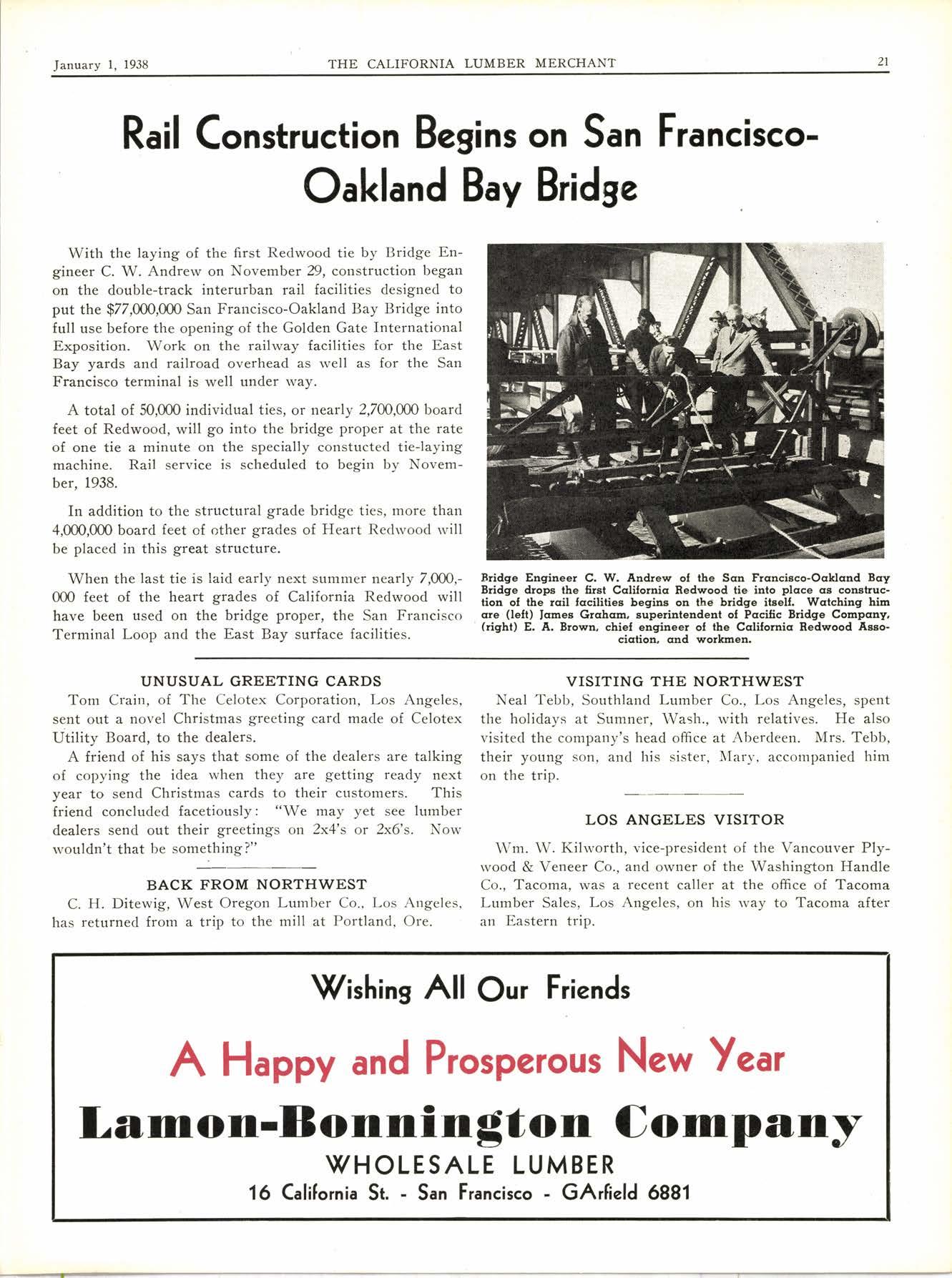
2 minute read
Negotiations Will Begin on Proposed Reciprocity Trade Agreement
Seattle, Wash., December 27.-Negotiations will begin at once on the proposed Reciprocity Trade Agreement between the United States and Great Britain, according to information received from Washington, D. C., sources by Seattle ofticials of the West Coast Lumbermen's Association. In a statement issued today by the Association it was predicted that the position of U. S. lumber will be the pivotal point of negotiations between the two countries.
"We are informed from Washington," the statement declared, "that the preliminary discussions between officials of the two governments have revolved about the question of parity for U. S. lumber with Canadian lumber in the United Kingdom market. This is the largest single lumber market in the world, excepting the United States. Lumber is a major item in Great Britain's economy. During the past three years England has constructed more than a million new homes, a figure far in excess of the new dwellings provided in this country during the same period. Lumber, with cotton and pork, formed the greater part of our exports to the United Kingdom for many years.
"Since the Ottawa Pact of 1932, which accorded Canada and other British Dominions preferential tariffs, American lumber exports to the great lJnited Kingdom market have been all but wiped out. In effect, these tariffs have prohibited trade with the U. S. in all lumber items which Canadian mills are able to supply."
Attention was called by the Association to the importance of the pending negotiations to the whole Northwest, in their relation to the region's payrolls, shipping, rail traffic and general business.
To present the reverse side of the Reciprocity picture, Association officials cited passages from the speech delivered by the Hon. Charles L. McNary, U. S. Senator from Oregon, from the Senate floor on August 10, 1937. Sena- tor McNary's speech was quoted by the Association as follows:
"The trade agreement with the Dominion of Canada, taking effect January l, L936, gave Canada a reduction of 50 per cent, or $2.00 per thousand board feet, on her lumber exports to the United States. In the case of Douglas fir and West Coast hemlock, the reduction is limited to an annual quota of 250,000,000 board feet.
"The lumber balance sheet of the reciprocal trade policy, in its first year of practical operation, 1936, stood thus: , "American lumber exports declined 33 million feet, or 27/2 per cent.
"American lumber imports increased 218 million feet, or 5O per cent.
"In the case of the woods most largely manufactured in the Pacific Northwest, Douglas fir and West Coast hemlock, the augmented imports during the first year of reciprocity exceeded 100 per cent."
With its statement the Association presented tables which indicate that the U. S. share in the British market for northern Pacific Coast lumber dropped from about 70 per cent in 1928 and 1929 to about 6 per cent in 1935, 1936 and 1937; while the American share in all export markets for northern Pacific Coast woods dropped from 80 per cent in I9D to 32 per cent in 1936.
"The West Coast lumber industry," the Association statement concluded, "is vitally concerned in these negotiations. We have presented briefs and will be represented at the public hearings. Douglas fir lumber is the keystone of whatever treaty may eventuate; and the ultimate success of the Reciprocity program substantially depends on the question of parity for U. S. lumber with Canadian lumber in the United Kingdom market.
Vacationing In Southland
C. H. King, C. H. King Lumber Co., Detroit, Mich., is visiting in Los Angeles and will remain in the Southland until the first of next March.










